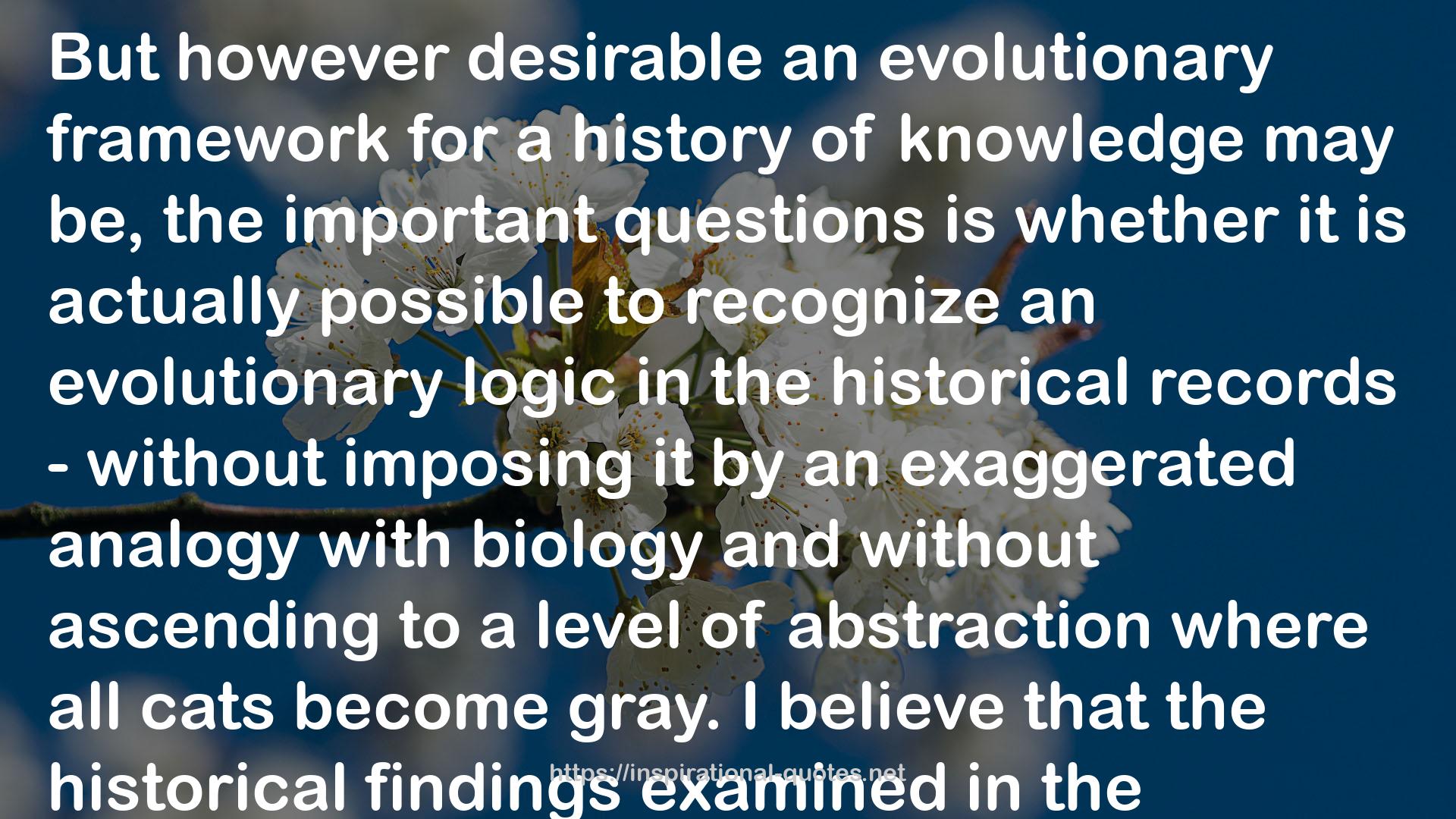" But however desirable an evolutionary framework for a history of knowledge may be, the important questions is whether it is actually possible to recognize an evolutionary logic in the historical records - without imposing it by an exaggerated analogy with biology and without ascending to a level of abstraction where all cats become gray. I believe that the historical findings examined in the preceding chapters point in such a direction, in particular the long-term, cumulative aspects of knowledge development, its dependence on contingent societal contexts, and the profound transformations of the architecture of knowledge.
Examples are the emergence of new systems of knowledge from a reorganization of preceding systems; the sedimentation and plateau-building processes of knowledge economies; the transformation of contingent circumstances and challenges into internal conditions for the further development of knowledge systems, accounting for the path dependency and layered structure of this development; and the feedback mechanisms that may arise between knowledge economies and knowledge systems, giving rise to the emergence of new epistemic communities.
Just like the evolution of life, knowledge development has direction but us not globally uniform. It is neither deterministic nor teleological. Chance events may have long-term effects by becoming incorporated into the developmental process. Knowledge development is self-referential insofar as it contributes to shaping its own environment by processes of sedimentation and plateau formation corresponding to niche construction in biology. It is also a layered process, in the sense that later forms of knowledge do not necessarily replace earlier ones. External representations shape the long-term transmission of knowledge, ensuring its continuity, while their exploration under different circumstances opens up possibilities for variation and change. "
― , The Evolution of Knowledge: Rethinking Science for the Anthropocene
